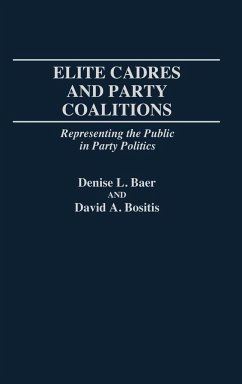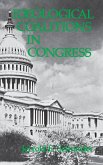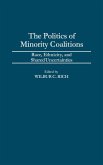This book grew out of the authors' growing sense of frustration with the tenor of the debate over the health of the American political party system. Conventional party theory, they contend, had become a theoretical straitjacket providing little understanding of the transformed contemporary American party system. Baer and Bositis present a theory--based on a combination of elite, interest group, and social movement theories--in an effort to redefine the terms of the debate. They argue that political action within and outside of the party system is elite and group-based and that the group concept incorporates and accounts for elite-mass interdependence. Coming at a time when many existing explanations of political party behavior are under increasing scrutiny, Elite Cadres and Party Coalitions offers a provocative new theory. It will be essential reading for students, scholars, and members of the general public interested in American politics. The authors have divided their argument into two parts, the first of which is an extensive review of the history of party reform and contemporary assessments of its meaning. Included in this review is a similarly extensive assessment of a variety of party and party-related theory and scholarship. This is followed by an explanation of their own party elite theory of democracy. The second half of the book is devoted to a test of the various theories of party behavior using survey data from The Party Elite Study and from the 1980 and 1984 National Election Studies. These data are used to make comparisons over time among four elite cadres in both parties: nominating convention delegates, national committee members, and state and county chairs in office in 1980 and 1984.
Hinweis: Dieser Artikel kann nur an eine deutsche Lieferadresse ausgeliefert werden.
Hinweis: Dieser Artikel kann nur an eine deutsche Lieferadresse ausgeliefert werden.








